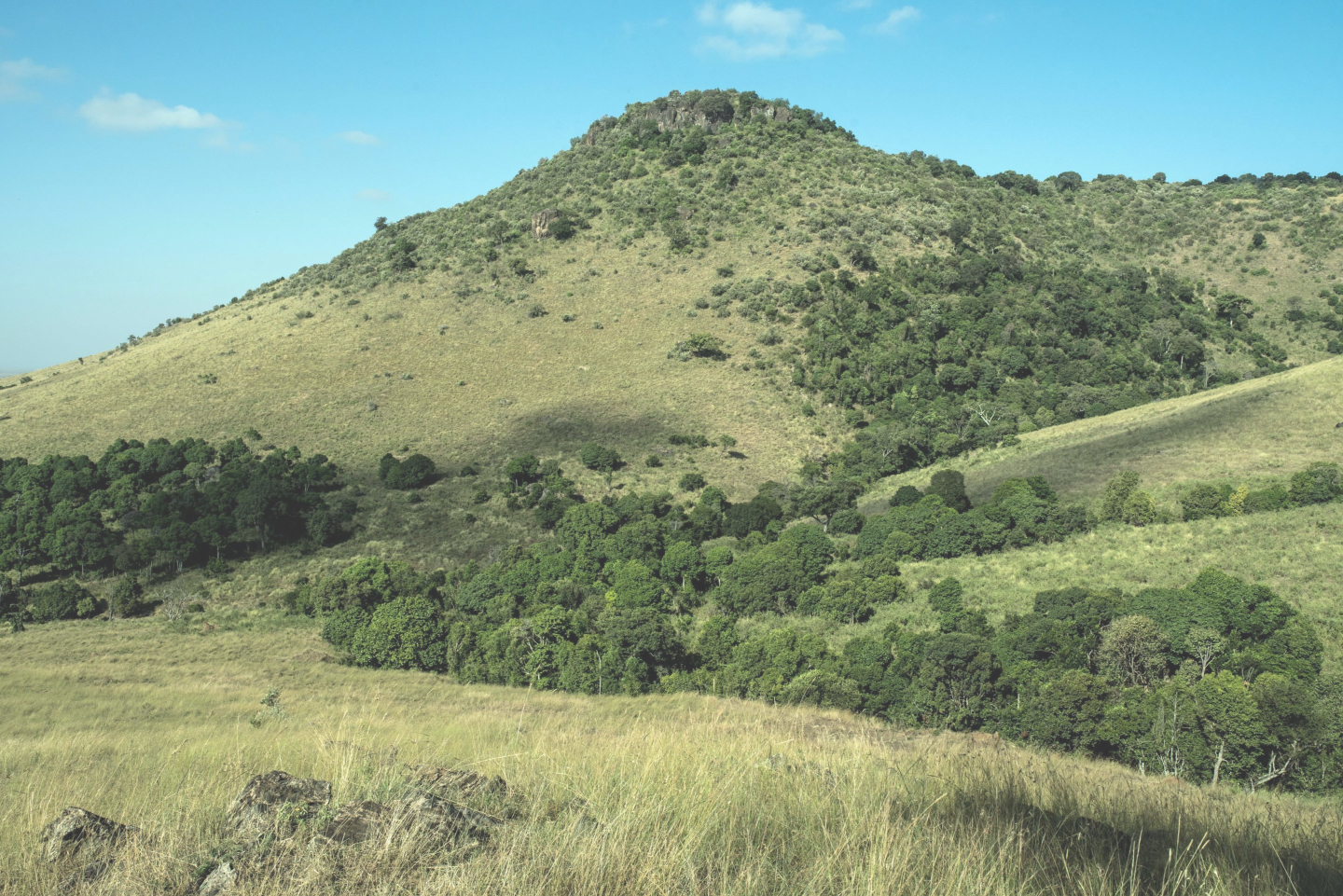Buying Land in Kenya: A Step-by-Step Guide for 2025
Investing in land is one of the most secure and rewarding financial moves you can make, and Kenya is a prime destination for land investment in Africa. With a rapidly growing economy, infrastructural development, and a robust real estate market, buying land in Kenya offers excellent opportunities for residential, commercial, and agricultural use. However, the process of purchasing land can be complex, and understanding the legal, financial, and logistical considerations is essential to make a smart and secure investment.
This comprehensive guide will walk you through everything you need to know about buying land in Kenya. From understanding ownership types and legal requirements to avoiding scams and finding the best locations, you’ll gain the insights necessary to navigate the process confidently and successfully.
Table of Contents
- Why Invest in Land in Kenya?
- Types of Land Ownership in Kenya
- Steps to Buying Land in Kenya
- Costs Involved in Buying Land
- Common Mistakes to Avoid
- Legal Considerations and Due Diligence
- Best Places to Buy Land in Kenya
- Financing Options for Buying Land in Kenya
- How to Avoid Land Scams in Kenya
- FAQs About Buying Land in Kenya
1. Why Invest in Land in Kenya?

Kenya’s real estate sector is booming, making it one of the most promising investment opportunities in Africa. The growing population, urbanization, and infrastructure development have led to a steady increase in land values. Buying land in Kenya provides you with:
- High ROI: Land appreciates over time, offering solid returns.
- Versatile Investment: Suitable for residential, commercial, or agricultural development.
- Growing Economy: Kenya’s economy is on the rise, driven by sectors like technology, tourism, and agriculture.
- Increased Infrastructure Development: Major projects like roads, airports, and railways boost land value.
- Stable Asset: Unlike other investments, land retains its value over time.
Emerging Trends in Land Investment
- Satellite Towns: Areas surrounding major cities like Nairobi are becoming popular for residential and commercial investments.
- Agribusiness Opportunities: Land for farming is in high demand as Kenya focuses on food security.
- Tourism and Hospitality: Coastal and scenic regions are attracting investors in tourism-related properties.
2. Types of Land Ownership in Kenya
Before purchasing, it’s important to understand the types of land ownership in Kenya:
-
- Freehold Land: You have full ownership rights with no time limit.
- Leasehold Land: Ownership is limited to a specified period (usually 99 years) and can be renewed.
- Public Land: Owned by the government and reserved for public use.
- Community Land: Owned by groups or communities under customary law.
How to Verify Land Ownership Type
-
- Freehold vs. Leasehold: Check the title deed to determine the ownership type.
- Historical Records: Review historical ownership records to ensure legitimacy.
- Survey Plans: Verify land boundaries through registered survey plans.
3. Steps to Buying Land in Kenya
1. Identify the Land
- Research the area and identify the type of land that fits your needs.
- Visit the site in person to verify its location and condition.
- Consider factors such as accessibility, infrastructure, and proximity to amenities.
2. Conduct a Title Search
- Visit the Ministry of Lands or use the e-Citizen portal to confirm the land’s ownership status.
- Ensure the title deed is clean, with no disputes or encumbrances.
- Check the authenticity of the title deed by comparing it with records at the local land registry.
3. Hire a Lawyer
- Engage a qualified lawyer to guide you through the process and handle legal paperwork.
- Your lawyer can help identify potential issues and ensure compliance with all legal requirements.
4. Negotiate the Price
- Compare prices in the area and negotiate for the best deal.
- Ensure the agreed price is documented in writing.
- Consider getting a property valuation to ensure you’re paying a fair price.
5. Draft and Sign the Sale Agreement
- Your lawyer will draft the sale agreement outlining the terms and conditions.
- Both parties must sign the agreement and have it witnessed.
- Include terms such as the payment schedule, transfer timeline, and penalties for breach of contract.
6. Payment and Transfer of Ownership
- Pay the agreed amount via a secure method, such as a bank transfer.
- Apply for the transfer of ownership at the Ministry of Lands.
- Ensure all taxes and fees are paid to facilitate a smooth transfer.
7. Obtain a New Title Deed
- After the transfer is complete, obtain the new title deed in your name.
- Keep copies of all transaction documents for future reference.
4. Costs Involved in Buying Land
When buying land in Kenya, consider these costs:
- Stamp Duty: 2% to 4% of the property’s value.
- Legal Fees: Approximately 1% to 2% of the purchase price.
- Title Search Fees: Around Ksh 500 to Ksh 1,000.
- Registration Fees: About Ksh 5,000 to Ksh 7,500.
- Valuation Fees: Typically 0.25% of the land’s value.
- Survey Fees: Varies based on land size and location, usually between Ksh 10,000 and Ksh 30,000.
Hidden Costs to Watch Out For
- Land Clearing Costs: If the land is undeveloped, clearing costs may apply.
- Infrastructure Costs: Connecting utilities like water, electricity, and roads.
- Agent Fees: If using a real estate agent, expect to pay a commission (usually 2% to 5%).

5. Common Mistakes to Avoid
- Skipping Due Diligence: Always verify ownership and land history.
- Verbal Agreements: Ensure all agreements are in writing.
- Ignoring Legal Advice: Hire a qualified lawyer to avoid legal pitfalls.
- Overlooking Costs: Account for all fees and taxes involved.
- Buying Land in Disputed Areas: Avoid land in areas with unresolved disputes or pending court cases.
6. Legal Considerations and Due Diligence
Key Steps for Legal Protection
- Verify the Title Deed: Ensure the seller has the legal right to sell the land.
- Check for Encumbrances: Confirm there are no loans or disputes tied to the land.
- Land Use Zoning: Ensure the land is zoned for your intended use (residential, agricultural, commercial).
7. Best Places to Buy Land in Kenya
1. Nairobi and Surrounding Areas
- Karen, Runda, Kitengela, Konza city: Prime locations for residential and commercial investment.
2. Coastal Regions
- Mombasa, Malindi, Diani: Ideal for tourism-related developments.
3. Rift Valley
- Nakuru, Naivasha, Eldoret: Great for agricultural and residential investments.
8. Financing Options for Buying Land in Kenya
Purchasing land can be a significant investment, and financing options can help make this goal more achievable. Here are several financing methods available to buyers in Kenya:
1. Bank Loans and Mortgages
Many banks offer loans specifically tailored for land purchase. Features of bank loans include:
- Loan Terms: Typically 5 to 20 years for repayment.
- Interest Rates: Rates vary between 12% to 15% per annum, depending on the bank.
- Eligibility: Requires proof of income, creditworthiness, and collateral.
- Down Payment: Most banks require a down payment of at least 10% to 20% of the land’s purchase price.
Top Banks Offering Land Purchase Loans:
- Kenya Commercial Bank (KCB)
- Equity Bank
- Co-operative Bank of Kenya
- NCBA Bank
2. Sacco Loans
Savings and Credit Cooperatives (Saccos) offer more flexible and affordable financing compared to banks. Benefits of Sacco loans include:
- Lower Interest Rates: Typically between 8% to 12%.
- Flexible Terms: Easier eligibility requirements.
- Member-Based Services: Saccos offer loans based on your savings and contributions.
Popular Saccos for Land Financing:
- Mwalimu Sacco
- Stima Sacco
- Kenya Police Sacco
- Harambee Sacco
3. Microfinance Institutions
Microfinance institutions cater to individuals who may not qualify for traditional bank loans. These institutions offer:
- Short-Term Loans: Repayment terms typically range from 6 months to 5 years.
- Higher Interest Rates: Rates vary between 15% to 18%.
- Minimal Requirements: Often require basic identification and proof of income.
Examples of Microfinance Institutions:
- Faulu Kenya
- KWFT (Kenya Women Microfinance Bank)
- SMEP Microfinance
4. Developer Payment Plans
Some property developers offer in-house financing plans, such as:
-
- Instalment Plans: Spread payments over 6 to 24 months.
- Zero-Interest Options: Some developers offer interest-free periods for early payments.
- Flexible Terms: Tailored to individual needs and timelines.
5. Government Schemes
The Kenyan government occasionally offers subsidized loans and incentives to promote land ownership, especially for low-income earners and first-time buyers. Programs such as the Affordable Housing Scheme may include land-buying options.

9. How to Avoid Land Scams in Kenya
Buying land in Kenya can be lucrative, but scams are a real threat. Protect your investment by following these critical steps:
1. Verify Ownership
- Title Search: Conduct a title search at the Ministry of Lands or via the e-Citizen portal to confirm the seller’s ownership.
- Cross-Check Documents: Ensure the details on the title deed match those in the official land registry records.
2. Engage Professionals
- Hire a Lawyer: A qualified lawyer will help review documents and uncover potential issues.
- Surveyor Verification: A professional surveyor can help confirm land boundaries and physical location.
3. Visit the Land
- Physical Inspection: Never buy land without visiting it in person. Verify landmarks, infrastructure, and accessibility.
- Talk to Neighbors: Local residents can provide insights into the land’s history and potential disputes.
4. Avoid Unverified Agents
- Licensed Agents Only: Work with agents registered with the Estate Agents Registration Board (EARB).
- Request Identification: Always ask for official identification and proof of credentials.
5. Be Wary of ‘Too Good to Be True’ Deals
- Market Rates: Compare the land price with others in the area. Extremely low prices could indicate fraud.
- Quick Sales Pressure: Avoid sellers who pressure you to make immediate payments.
6. Insist on Legal Documentation
- Written Agreements: Ensure every agreement, including payment terms, is documented and signed.
- Receipts: Always get official receipts for any payments made.
7. Check for Encumbrances
- No Outstanding Loans: Confirm there are no mortgages or loans tied to the land.
- Pending Cases: Check if the land is involved in any ongoing court disputes.
By taking these precautions, you can minimize the risk of falling victim to land scams and secure your investment safely.
- Verify Ownership: Always conduct a title search.
- Buying land in Kenya requires vigilance to avoid scams and fraud. Here are additional strategies to protect your investment:
8. Verify Historical Ownership
- Chain of Ownership: Request to see the land’s ownership history to ensure it has been transferred legitimately over the years.
- Historical Searches: Conduct searches at the local registry to confirm there are no breaks in the chain of ownership.
9. Demand a Mutation Form
A mutation form is essential when land has been subdivided. Ensure the subdivision was legally approved by the relevant authorities.
10. Engage Local Authorities
- Chief’s Office: Visit the local chief’s office to confirm the seller’s identity and land history.
- County Land Office: Cross-check records with the county land office for added security.
10. FAQs About Buying Land in Kenya
1. What is the cost of a title search in Kenya?
A title search typically costs between Ksh 500 and Ksh 1,000, depending on the location and method of search.
2. How long does it take to complete a land purchase?
On average, a land purchase takes between 30 to 90 days to complete, depending on due diligence and documentation requirements.
3. Can foreigners buy land in Kenya?
Yes, but foreigners are restricted to leasehold land for a maximum of 99 years. Freehold land is reserved for Kenyan citizens.
4. What is stamp duty, and how is it calculated?
Stamp duty is a tax paid during property transfer. It is calculated as 2% to 4% of the land’s market value, depending on the location.
5. What happens if the lease on leasehold land expires?
You can apply for a lease renewal through the Ministry of Lands before the lease expires.




